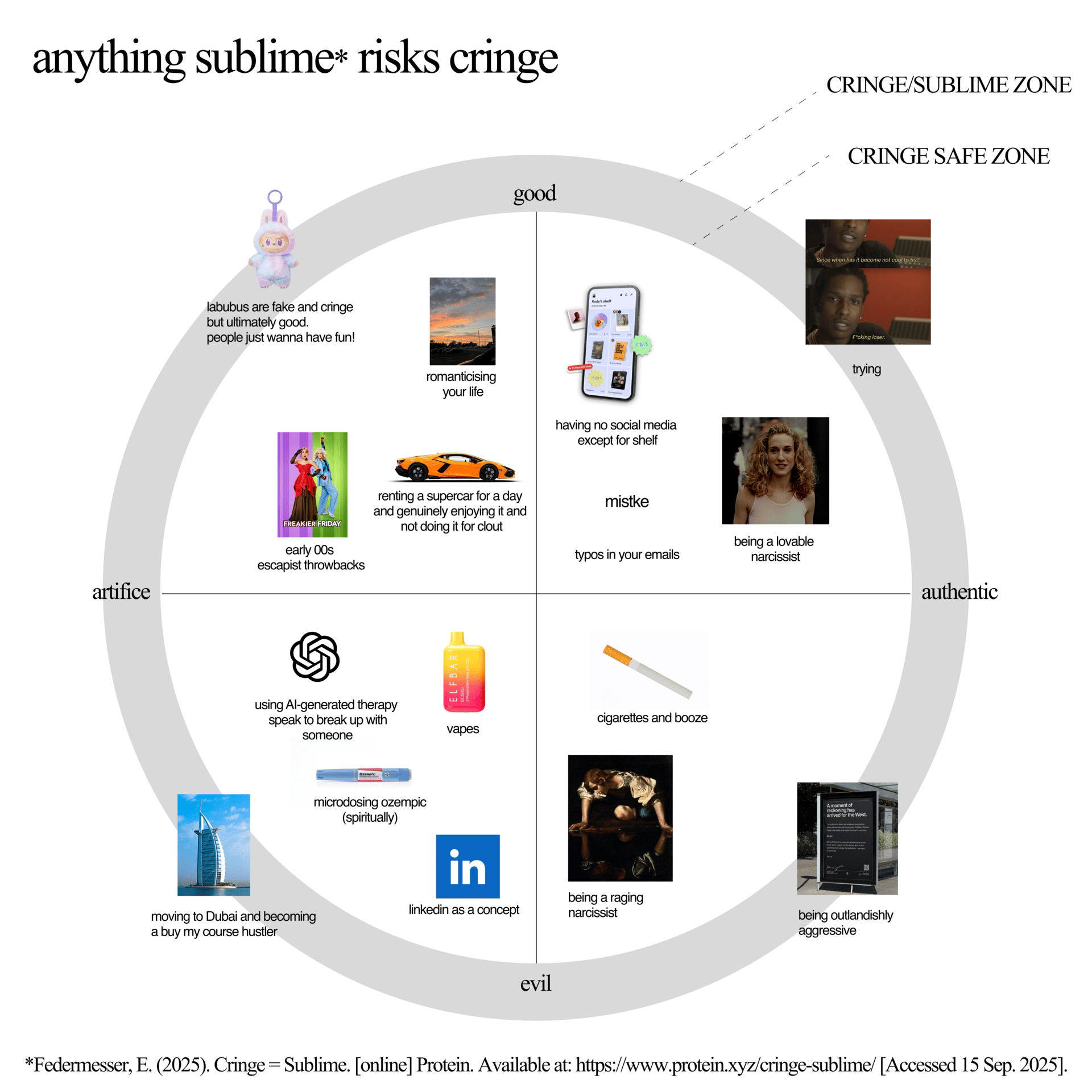Spend five minutes on the internet and it’s easy to get one-shotted into becoming a cynic. It’s not called doomscrolling for nothing. Amongst algorithmic glut, political uncertainty and the shadow of AI, we’re easily psy-oped into feeling that the end is not just near, it’s here!

In recent history, a mood of dark cynicism has spread its tentacles out across culture and commerce. Whether it’s ‘lying flat’ in China or being a NEET in the States, being a doomer was almost a signal to the world that you weren’t having an extreme reaction, but the correct, sensible, realistic reaction.
Yet, even as dark times have overtaken us in the past, we’ve always found a way through. After the literal dark ages came the renaissance. So what comes next? How do we become more? How do we find a reason to keep living, to keep trying, to keep yearning?
I believe we’re at the threshold of a metamodern turn. A cultural pivot that accepts the shadow of recent years without being consumed by it. If light mode was naïve optimism, and dark mode was cynical collapse, then metamodernity is the secret third thing. It doesn’t tell you to “just be positive” (and that if you’re not happy, it’s your fault and yours’ alone). Instead, it acknowledges how bad things are, but insists they’re still worth fixing.
Metamodernity as originally coined by theorists Vermeulen and van der Akker is an “oscillation between sincerity and irony, hope and doubt”. It’s a worldview that admits the future is not guaranteed but still finds meaning in the effort to build one.
Within the context of AI smoothing out the edges of humanity into a frictionless blob, metamodernity is the counterweight; Of friction, of humanity, of sharing things we love in real life with one another (maybe even on Shelf). Perhaps it’s in a way that is slower, and less frequently, but infinitely more imbued with care and affection.
How we get ourselves to metamodernity I can’t pretend to know entirely. If it were easy to define and act upon, we would already have solved it.
In my view however, it relies on the willingness to be earnest–to be cringe. Because ultimately, to be cringe is to be free. As theorist Elizaveta Federmesser explained, cringe is necessary because it holds the shock of sincerity. It sends ‘chills down your spine’ because there is sublime beauty in the attempt.
To be entirely free of cringe means never taking the risks to show your real self to the world. It means sanding down the edges of yourself to be the most presentable version, to be disaffected, to be detached, to be ‘effortless’ (derogatory).
Yet, not caring about anything means being lacklustre towards everything. And ultimately, that’s boring and fake.
Artificial intelligence? No thanks, I want genuine cringe.
Curious about what else Edmond is into? Get real-time updates at shelf.im/edmond

